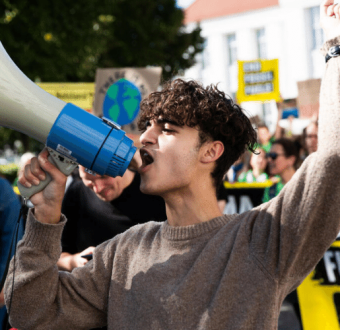Microsoft has made great progress in its commitment to clean energy and climate leadership in recent years, introducing an internal carbon fee and purchasing large amounts of wind energy to power two of its data centers.
But like other leading tech companies which have increased their commitment to renewable energy – including Facebook, Google and Yahoo – Microsofts progress has been undermined by its membership in the American Legislative Exchange Council, or ALEC, a shadowy, increasingly controversial organization that has led an attack by the fossil fuel industry against successful clean energy and climate policies in nearly all 50 states.
Today, we learned that Microsoft is correcting that inconsistency, as news spread, confirmed by Microsoft to Greenpeace, that the company has dumped its ALEC membership.
ALECs energy agenda is dominated by deep-pocketed coal and oil interests like Exxon Mobil and Peabody Energy. Those companies write model legislation for ALEC to try to pass in states that wouldrepeal renewable energy laws,add fees to home and business owners with solar panels,attack EPA standards for carbon pollution, andmandate climate denial instructionin schools, among other initiatives.
Microsoft remains a member ofother groups, like the US Chamber of Commerce, CEI, and State Policy Network, that continue to attack clean energy and climate policies, so it still has work to do to ensure that its political activities arent undermining its carbon and renewable energy goals, but ALEC has led the charge against the clean energy revolution in recent years, so Microsofts dumping its membership is a big move in the right direction.
Google, Facebook, eBay, Yahoo, Yelpand other technology companies that are currently still ALEC members would do well to learn from Microsoft’s leadership.Many of these companies, especially Google and Facebook, have made significant progress powering their operationswith renewable energy, and have steadily become stronger advocates for clean energy policies. But they haverationalized their ALEC membershipwith the excuse that it is an important vehicle for their other, non-energy related political priorities.
Microsoft’s departure from ALEC proves that argument specious: technology companies can advocate for their political agenda without loaning their credibility to organizations that undermine their environmental commitments at every turn.
Greenpeace has seen a positive change in Microsofts commitment to renewable energy in the past year, with the company signing significant contracts for renewable energy to power its data centers inTexasandIllinois, moving away from its reliance on the purchase of unbundled renewable energy credits. Its decision to dump ALEC is hopefully another signal that under its new CEO, Microsoft recognizes that renewable energy is smart for the economy, the environment, and Microsofts bottom line.
Its time for Google, Facebook and the other ALEC members to follow Microsofts decision, dump ALEC, and stop undermining their own progress that is jumpstarting our clean energy revolution.



